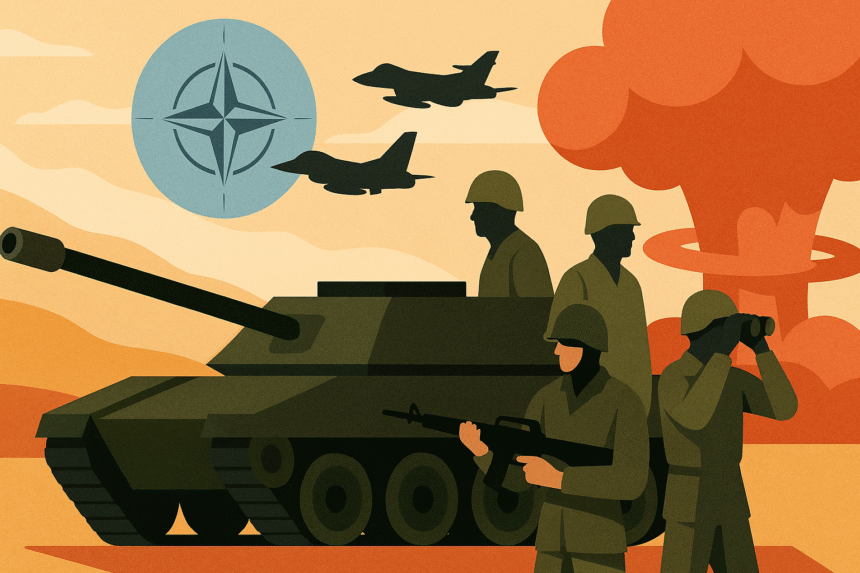US President Donald Trump’s statement of support for a European deterrence force in Ukraine marks an important step toward addressing Kyiv’s long-term security needs. But without firm action from European allies, Ukraine risks being left exposed to future Russian aggression once the war ends.
Why Security Guarantees Are Critical
Ukraine cannot agree to any peace deal that lacks robust security guarantees. The Nato Article 5 mutual defence clause remains the strongest option, offering collective protection at minimal cost. However, if Nato membership is not on the table, Europe must provide its own credible military commitments.
The most effective guarantee would be a European deterrence force stationed inside Ukraine. Positioned behind Ukrainian lines, such a force could provide rapid support and demonstrate to Moscow that any renewed offensive would trigger a direct response from Ukraine’s allies. Without this, Russia could exploit a ceasefire to regroup and prepare for another assault.
Rethinking the Strategy
Talk of a “coalition of the willing” led by the UK and France has circulated for months. Yet many European leaders still view security guarantees as part of a final peace settlement, rather than as a precondition for one. That mindset must change.
A European security framework should rest on three key pillars:
- Strengthening Ukraine’s Own Defence
- Europe should invest directly in Ukraine’s growing defence industry, which already produces cost-effective, battlefield-proven technologies.
- Partnerships between European firms and Ukrainian manufacturers would help Ukraine build stockpiles and adopt a “porcupine strategy” to deter future Russian aggression.
- Establishing European Command Structures
- While Trump has ruled out Nato combat deployments, Europe could still utilise Nato’s organisational framework.
- The deputy supreme allied commander Europe (a British officer) could coordinate deployments, replicating Nato’s enhanced forward presence model in the Baltics and Poland.
- Contributions could come from the 30+ countries that have signed bilateral security agreements with Ukraine under the Kyiv Security Compact.
- Securing US Support in Key Areas
- Trump has signalled readiness to support a European-led mission “by air.” The US could provide critical capabilities in transport, intelligence, and air defence.
- Europe lacks sufficient heavy transport aircraft and intelligence collection tools, making American partnership vital.
- Additional Patriot missile defence batteries and long-range strike deterrents would bolster Ukraine’s air defence and shield key infrastructure.
The Urgency of Action
While Washington has indicated openness to these proposals, history shows that nothing is certain until signed into law. European leaders must move quickly to formalise arrangements.
Russia, meanwhile, has demanded a role in “guaranteeing” Ukraine’s security — a proposition compared to “putting a nuclear-armed bear in charge of the henhouse.”
Conclusion
Ukraine has already requested such a deterrence force. For Europe, the choice is clear: act now to ensure Kyiv’s security and strengthen its negotiating hand, or risk turning a coalition of the willing into a coalition of the waiting — with lasting consequences for European security.








